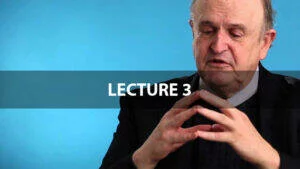An accomplished philosopher, the Dominican Domingo de Soto (1494-1560) was chair of theology at the University of Salamanca and an imperial theologian during the Council of Trent. In this interpretation of Romans 9:6-13, the Catholic theologian affirms his Augustinian credentials, asserting the priority of divine grace in salvation and the faithfulness of God to His promises.
Romans 9:6–13
But it is not as though the word of God has failed. For not all who are descended from Israel belong to Israel, and not all are children of Abraham because they are his offspring, but “Through Isaac shall your offspring be named.” This means that it is not the children of the flesh who are the children of God, but the children of the promise are counted as offspring. For this is what the promise said: “About this time next year I will return, and Sarah shall have a son.” And not only so, but also when Rebekah had conceived children by one man, our forefather Isaac, though they were not yet born and had done nothing either good or bad—in order that God’s purpose of election might continue, not because of works but because of him who calls—she was told, “The older will serve the younger.” As it is written, “Jacob I loved, but Esau I hated.
Commentary on Romans 9:6–13
In [this section of this chapter] Paul establishes this point concerning the origin of grace, namely, that it does not have its origin by the merits of people, but from the predestination of God. Thus, when he recounted the numerous privileges of the Jews, he went on to explain how all those things occurred to them by the grace of God. And furthermore, when he lamented their wretched downfall, he anticipates their argument so that they would not conclude that the promises of God (which he mentions now among the other gifts) had been uncertain and in vain. For he had promised to the fathers salvation through the seed of Abraham and Israel; therefore, if such a large number of their posterity was deprived of that faith and salvation, those promises seem to have been void. Therefore he cuts off this conclusion in advance, saying, “But the Word has not failed God”; that is to say, “I am not so deeply saddened by your departure that my confidence in the promises of God has collapsed through you or that my confidence in those promises has been broken or weakened by your guilt.”








Comments
Be the first one to make a comment!